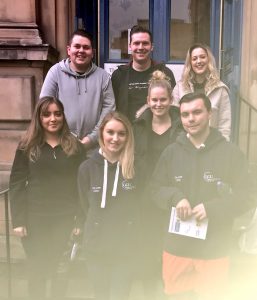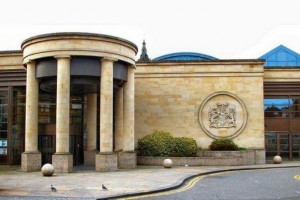Arbitration is a requirement which is commonly included with contracts. This means that whenever there is an issue with your contract, you have given-up your right to take the matter to court as you have agreed to arbitration, and as arbitration is legally binding a Sheriff or Judge would not entertain your claim.
This can cause problems where the cost of arbitration (which can be rather  astronomical depending on which institute the clause requires) completely outweighs the cost being claimed under the contract. However, all is not lost- as there is a way to defeat an arbitration clause.
astronomical depending on which institute the clause requires) completely outweighs the cost being claimed under the contract. However, all is not lost- as there is a way to defeat an arbitration clause.
Section 10 of the Arbitration (Scotland) Act 2010 states that the court must cist those proceedings insofar as they concern the matter if:
- An arbitration agreement provides that a dispute on the matter is to be resolved by arbitration (whether immediately or after the exhaustion of other dispute resolution procedures);
- The applicant is party to the arbitration agreement (or is claiming through or under a party);
- Notice of the application has been given to the other parties to the legal proceedings;
- The applicant has not taken any steps in the legal proceedings to answer any substantive claim against him, nor otherwise acted since the legal proceedings were brought in a manner indicating a desire to have the dispute resolved by legal proceedings rather than arbitration; and
- Nothing has caused the court to be satisfied that arbitration agreement concerned is void, inoperative or incapable of being performed.
As regards the last criterion, regard should be had to Section 89-91 of the Arbitration Act 1996. Although this is an English Act, these sections apply in Scotland also. They have two broad effects:
Section 89(1) which subjects consumer arbitration agreements to the Consumer Rights Act 2015; and
Section 91(1) which provides: “A term which constitutes an arbitration agreement is unfair…in so far as it relates to a claim for a pecuniary remedy which does not exceed the amount specified by order for the purposes of this section.”
Therefore, this states that an arbitration agreement will be automatically unfair, and thus not binding on the consumer, so far as it relates to a claim for a pecuniary remedy which does not exceed an amount specified by in the Unfair Arbitration Agreement (Specified Amounts) Order 1999, which is £5,0000.
However, if an agreement is not automatically unfair it may be adjudged under the Consumer Rights Act 2015, this statute refers to a situation where an arbitration clause is imposed on a consumer, and will not apply where the parties enter into a freestanding arbitration agreement, nor where the parties genuinely agree to insert an arbitration clause into the contract. If agreement led to the insertion then it will not be held unfair, per Rimer J in Bryen and Langley Ltd v Boston [2005] WWCA Civ 973. Yet, it can be argued to be unfair if, at the time of creating the contract, the clause was not brought to the consumer’s attention and implications explained, as per Ramsey J in Mylcrist Builders Ltd v Buck [2008] EWHC 2172. This is to ensure that the consumer is not left at a disadvantage, with no legal remedy, due to the cost of arbitration being significantly higher than the cost of litigating.
Therefore, if you (or your client) are faced with an arbitration clause which is just not plausible in seeking a remedy then you may still have the option of court intervention in a situation where the arbitration clause would cost more than the cost incurred under your contract.











